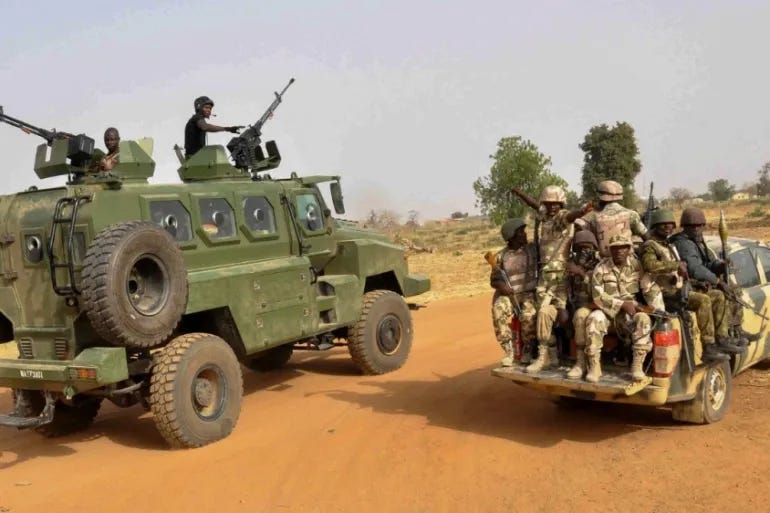Deadly Attack in Nigeria: Armed Groups Kill at Least 40 Farmers in Borno State
Boko Haram and ISWAP suspected in mass killing near Lake Chad.
At least 40 farmers were killed in northeastern Nigeria’s Borno State in a brutal attack by armed groups, according to government officials. Fighters linked to Boko Haram and the Islamic State West Africa Province (ISWAP) are believed to be behind the deadly assault, which took place in the Dumba region on Sunday night.
Mass Execution of Farmers
Borno State Governor Babagana Umara Zulum and State Information Commissioner Usman Tar confirmed the attack on Monday. According to Tar, the armed groups rounded up dozens of farmers along the shores of Lake Chad before executing them.
“Initial reports indicate that about 40 farmers have been killed, while efforts are ongoing to locate survivors who managed to escape,” Tar said.
The state government has ordered military forces in the region to launch operations against the insurgents, particularly in the Dumba area and other known hideouts around Lake Chad.
Dangerous Farming Conditions
The commissioner noted that the victims had moved beyond the safe farming zones designated by the military, unknowingly entering an area filled with landmines and frequently targeted by armed groups.
Governor Zulum urged civilians to remain within secure zones that had been cleared of insurgents and explosives. He also called for a full-scale investigation into the attack to determine how the armed groups were able to carry out the massacre.
A Region Under Siege
Lake Chad, which spans Nigeria, Niger, Cameroon, and Chad, has long served as a stronghold for Boko Haram and ISWAP. The region’s dense terrain provides cover for insurgents, allowing them to launch attacks with impunity.
Boko Haram, which began its insurgency in 2009, aims to impose its interpretation of Islamic law and has frequently targeted civilians, security forces, and infrastructure. The conflict has resulted in approximately 35,000 deaths and displaced more than two million people in northeastern Nigeria, according to the United Nations.
Authorities continue to search for survivors and are working to bolster security in the region, but the attack highlights the persistent threat of armed groups in Nigeria’s northeast.


